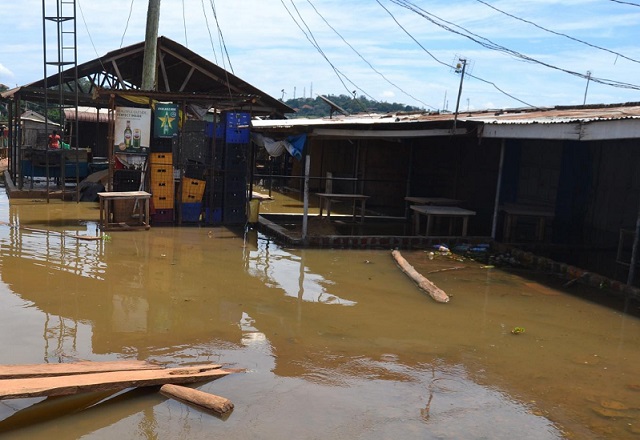
They remind us of its uncompromising laws that are not cheatable and bite so deeply and indiscriminately
COMMENT | JOSEPH MUKASA NGUBWAGYE | Images of “swimming” portions of prominent hotels in Kigo and Entebbe in Wakiso district continue to make rounds on social media. The situation is not any different in areas of Ggaba, Munyonyo, and other upscale suburbs of Kampala adjoining Lake Victoria. Several beaches and landing sites are currently an extension of the lake. At the same time, there is fear that some roads such as Entebbe road might be cut off by the surging Lake Victoria waters. This has come as a result of the rising water levels of Lake Victoria, estimated to surpass the maximum ever recorded more than fifty years ago.
Similarly, news of submerged houses around Lake Kyoga was telecast on different media outlets. The advancing waters washed clear the lake shores and the victims were the fishermen and other communities who depend on the lake and associated activities for survival. They had chosen to stay in the “roots” of the lake rather than make use of it basing from a distance. The country recently experienced a nationwide load shedding in a long time due to a “floating island” forcing a shutdown of power generation at Owen falls dam. Surveillance continues of other approaching “islands” to either divert or harvest them before they pose an even bigger challenge. We do not know yet what the total cost of the damage will be by time the rains stop.
The current rainy season is not the heaviest this country has seen. Heavier and prolonged rains have appeared in the past but they did not cause similar problems. This is proof therefore that the natural flow system of water has been interfered with. In the book, The Closing Circle, Barry Commoner outlines four laws of nature, namely: Everything is connected to everything else, everything must go somewhere, nature knows best, and there is no such thing as free lunch.
Besides, the government has put in place a legal and regulatory framework for nature conservation. The Constitution of the republic which provides for the protection of important natural resources including land, water, wetlands, fauna, and flora on behalf of the people of Uganda, and other enabling laws such as the National Environment Management Act 2019, as amended, are proof of the country’s commitment to the protection of the environment. All these laws are in place to foster the harmonious co-existence of human beings and the environment. For so long however, these laws have been flouted, sometimes deliberately, to reap much more than nature can provide without straining.
One such act, and the biggest contributor to the challenges we are currently facing, is wetland reclamation. Wetlands have become the biggest victim of our society’s insatiable appetite for expansion. The rich continue to fill them up so that they can construct multimillion structures as the rural peasants convert them into farmlands. Indeed, the National Environment Management Authority (NEMA) in its State of Environment Report of 2016/17 indicated that wetland cover declined from 13 to 8.6 percent between 1990 and 2015. It also emphasized that lakes are facing continued pollution.
Wetlands provide a perfect natural flood control mechanism. Acting like a sponge, they hold water for long, filter it, and release it slowly into larger water bodies such as lakes to which they are connected in a more purified form. Once this function is impaired through conversions and interruptions, water flows faster, raising water levels in the lakes more rapidly while depositing any pollutants carried along.
It is everybody’s responsibility to ensure a healthy wetland system. The National Environment Management Authority and other responsible agencies should intensify sensitization and enforcement. Nonetheless, in case of failure, nature will always remind us of its uncompromising laws that bite so deeply and indiscriminately.
****
 Joseph Mukasa Ngubwagye is Senior Research Fellow, Advocates Coalition for Development and Environment (ACODE)
Joseph Mukasa Ngubwagye is Senior Research Fellow, Advocates Coalition for Development and Environment (ACODE)
jngubwagye@acode-u.org
CLICK TO READ ONLINE MAGAZINE HERE
 The Independent Uganda: You get the Truth we Pay the Price
The Independent Uganda: You get the Truth we Pay the Price




I believe you Joseph, development and politics in natural resources management offices, politically influenced and nepotistic recruitments as well as giving away swamps to investors and electorates or invasion by poor people or industrial areas, mechanised farming by foreigners mainly Chinese and Indians are some of the big challenges blamed for increasing water levels in the lake.